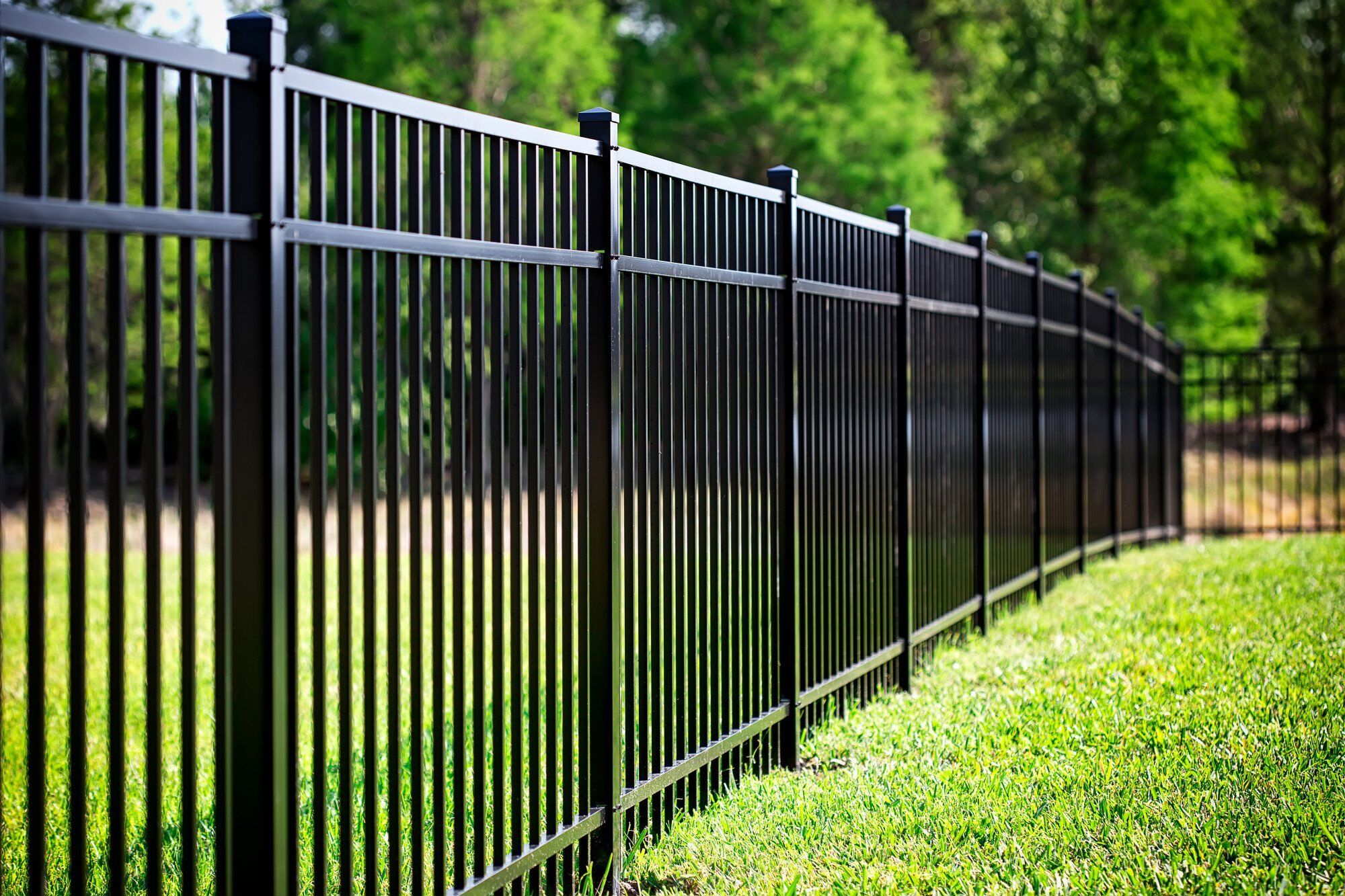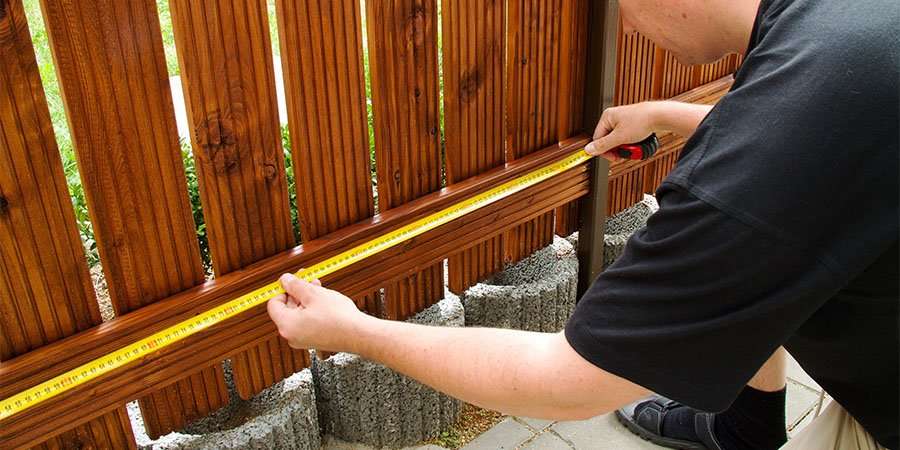All Categories
Featured
When you decide to mount a fencing around your property, it's necessary to recognize the permit requirements particular to your location. While setting up a fencing can appear like a simple home renovation job, local laws and laws should be complied with to ensure the installation is certified and legal. Stopping working to protect the appropriate permits can lead to penalties and even need you to eliminate the fence. Below's a detailed look at the permits you may need for fencing installment.
Why Do You Need a License for Fence Setup? A fence is even more than just an obstacle between homes-- it can affect safety and security, property value, visual appeals, and also ecological problems. Neighborhood governments need licenses to make sure that fencings meet particular criteria and do not create problems for energies, neighbors, or the community overall. Licenses additionally make sure that the installment follows zoning legislations, building codes, and safety laws.
![]()
Sorts Of Licenses You Might Require. Structure Permit. A structure permit is among the most typical licenses required for fence setup. This authorization ensures that the fencing satisfies regional building ordinance. For instance, if you're building a fence over a particular elevation (typically over 6 feet), you'll likely require a structure license. The neighborhood structure division will normally analyze the website and evaluation plans to make sure the structure is secure and does not obstruct public spaces or produce hazards.
Zoning Permit. Zoning regulations regulate exactly how land is used in a specific area, and they include guidelines concerning fencings. A zoning permit ensures your fencing conforms with area, height, and problem laws. Fencings might require to be set back a specific distance from pathways, roads, or building lines to avoid blockage or interference with energies. In some situations, zoning regulations can also specify which materials are allowed.
HOA Approval. If your residential property is part of a house owners organization (HOA), you might need to seek authorization before setting up a fencing. HOAs normally have guidelines that regulate the appearances and structure of fencings to guarantee they agree with the neighborhood. You might require to submit your prepare for authorization, and the HOA may limit fence design, product, or height.
Specialty Permits. In some locations, there may be added permits needed for certain scenarios. For example, if your fencing is near a secured ecological location or situated in a disaster area, you might need to get specialized licenses connected to ecological impact. If the fence is in a location with below ground utilities, you may need to acquire clearance to stay clear of harmful pipes or cables.
![]()
Easement or Energy Firm Approval. Prior to mounting a fencing, it's vital to examine whether the residential or commercial property consists of an easement, such as an utility easement, which could affect where you can place your fence. Easements are areas of land designated for public or personal utilities, and you may require permission from the energy company or various other authority to develop within this area.
Just How to Discover What Allows You Required. To make sure that you're adhering to all the essential guidelines, right here's just how you can establish the specific permits needed for your fence installment:
![]()
Visit Your Local Government Workplace: The very first step is to get in touch with your neighborhood structure or zoning department. Numerous cities and areas have standards offered online that specify what kinds of authorizations are needed for fencing installation. If not, visiting the workplace or calling personally can help clarify the process. Inspect Your City's Internet site: Many communities give details regarding fence installments and the permits called for via their main internet sites. Some websites even enable you to submit applications on the internet. Consult a Fencing Installation Professional: If you're unsure regarding regional laws, a specialist fencing specialist can assist. They know with the allowing procedure and can direct you with the steps. The Effects of Not Getting a Permit. Failing to secure the required licenses before setting up a fencing can result in significant effects. You may be fined or needed to eliminate the fence entirely.
Verdict. Installing a fence around your household home can add both safety and security and curb allure, yet it is necessary to guarantee you're adhering to the lawful action in the procedure. Looking into the specific license needs for your location, including building permits, zoning guidelines, HOA approval, and utility approvals, will aid ensure your fence installation goes efficiently. Making the effort to comprehend these requirements currently can conserve you from costly blunders and potential lawful concerns down the line.
Why Do You Need a License for Fence Setup? A fence is even more than just an obstacle between homes-- it can affect safety and security, property value, visual appeals, and also ecological problems. Neighborhood governments need licenses to make sure that fencings meet particular criteria and do not create problems for energies, neighbors, or the community overall. Licenses additionally make sure that the installment follows zoning legislations, building codes, and safety laws.

Sorts Of Licenses You Might Require. Structure Permit. A structure permit is among the most typical licenses required for fence setup. This authorization ensures that the fencing satisfies regional building ordinance. For instance, if you're building a fence over a particular elevation (typically over 6 feet), you'll likely require a structure license. The neighborhood structure division will normally analyze the website and evaluation plans to make sure the structure is secure and does not obstruct public spaces or produce hazards.
Zoning Permit. Zoning regulations regulate exactly how land is used in a specific area, and they include guidelines concerning fencings. A zoning permit ensures your fencing conforms with area, height, and problem laws. Fencings might require to be set back a specific distance from pathways, roads, or building lines to avoid blockage or interference with energies. In some situations, zoning regulations can also specify which materials are allowed.
HOA Approval. If your residential property is part of a house owners organization (HOA), you might need to seek authorization before setting up a fencing. HOAs normally have guidelines that regulate the appearances and structure of fencings to guarantee they agree with the neighborhood. You might require to submit your prepare for authorization, and the HOA may limit fence design, product, or height.
Specialty Permits. In some locations, there may be added permits needed for certain scenarios. For example, if your fencing is near a secured ecological location or situated in a disaster area, you might need to get specialized licenses connected to ecological impact. If the fence is in a location with below ground utilities, you may need to acquire clearance to stay clear of harmful pipes or cables.

Easement or Energy Firm Approval. Prior to mounting a fencing, it's vital to examine whether the residential or commercial property consists of an easement, such as an utility easement, which could affect where you can place your fence. Easements are areas of land designated for public or personal utilities, and you may require permission from the energy company or various other authority to develop within this area.
Just How to Discover What Allows You Required. To make sure that you're adhering to all the essential guidelines, right here's just how you can establish the specific permits needed for your fence installment:

Visit Your Local Government Workplace: The very first step is to get in touch with your neighborhood structure or zoning department. Numerous cities and areas have standards offered online that specify what kinds of authorizations are needed for fencing installation. If not, visiting the workplace or calling personally can help clarify the process. Inspect Your City's Internet site: Many communities give details regarding fence installments and the permits called for via their main internet sites. Some websites even enable you to submit applications on the internet. Consult a Fencing Installation Professional: If you're unsure regarding regional laws, a specialist fencing specialist can assist. They know with the allowing procedure and can direct you with the steps. The Effects of Not Getting a Permit. Failing to secure the required licenses before setting up a fencing can result in significant effects. You may be fined or needed to eliminate the fence entirely.
Verdict. Installing a fence around your household home can add both safety and security and curb allure, yet it is necessary to guarantee you're adhering to the lawful action in the procedure. Looking into the specific license needs for your location, including building permits, zoning guidelines, HOA approval, and utility approvals, will aid ensure your fence installation goes efficiently. Making the effort to comprehend these requirements currently can conserve you from costly blunders and potential lawful concerns down the line.
Latest Posts
Canyon Crest Venue: The Dream Venue for Your Memorable Day.
Published Dec 22, 24
1 min read
Exactly How Seasonal Weather Impacts Your Vehicle's Maintenance Requirements
Published Dec 22, 24
0 min read
Sustainable Roofing Solutions: The Eco-Friendly Advantage
Published Dec 22, 24
1 min read
More
Latest Posts
Canyon Crest Venue: The Dream Venue for Your Memorable Day.
Published Dec 22, 24
1 min read
Exactly How Seasonal Weather Impacts Your Vehicle's Maintenance Requirements
Published Dec 22, 24
0 min read
Sustainable Roofing Solutions: The Eco-Friendly Advantage
Published Dec 22, 24
1 min read